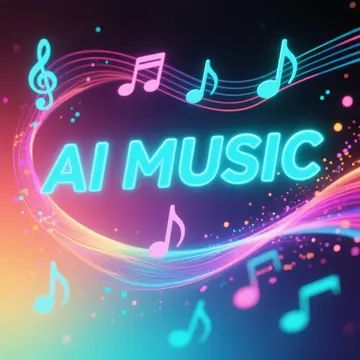As AI continues to reshape the music industry, many artists and creators are asking a crucial question: What are the copyright rules for AI-generated music? Whether you're using AI to assist in songwriting or fully generating tracks, it's vital to understand how copyright law applies to your creative work.
In this guide, we break down the AI music copyright rules, offer real-life examples, and provide legal tips to help you create and distribute AI music safely.

?? Why AI Music Copyright Rules Matter More Than Ever
AI tools like Suno, Udio, and Soundraw are enabling musicians to create tracks in minutes. But as fast as the technology evolves, the legal frameworks remain uncertain and inconsistent globally.
Without clear understanding of AI music copyright rules, creators risk:
Losing ownership of their work
Facing legal disputes over melodies, lyrics, or voice styles
Using AI platforms with restrictive or unclear license terms
?? Key AI Music Copyright Rules Every Creator Should Know
1. AI Alone Can’t Hold Copyright (In Most Countries)
In the U.S., UK, EU, and many other jurisdictions, copyright protection only applies to human-created works. If an AI composes music with no meaningful human contribution, it may not be copyrightable.
? Rule: Add original lyrics, arrangement, or performance to ensure your music has human authorship.
2. Who Owns the Output: You or the Platform?
Many AI music generators state in their Terms of Service that they either:
Grant you full commercial rights
Retain partial ownership
Restrict certain types of usage (e.g., broadcast, commercial ads)
? Rule: Always review the AI platform’s terms regarding ownership and licensing before publishing or monetizing the track.
3. Training Data May Create Legal Risk
AI models are trained on vast music datasets—often including copyrighted content. If your AI-generated song sounds too similar to an existing track, you could face accusations of copyright infringement, even unintentionally.
? Rule: Avoid using AI tools known for imitating specific artists or recognizable melodies unless licensed.
4. Vocal Cloning and Personality Rights
Using AI to replicate a famous singer's voice or style (without permission) can violate personality rights, even if the music itself is original.
? Rule: Don’t mimic real artists’ voices unless you’ve secured written legal consent.
?? Real Case Study: AI Ghostwriter vs. Drake & The Weeknd
In 2023, an anonymous creator known as Ghostwriter released “Heart on My Sleeve,” a viral AI-generated track using cloned voices of Drake and The Weeknd. Though technically original in lyrics and melody, the song was pulled from Spotify and YouTube within days.
Why? The cloned voices violated personality rights.
Legal Outcome: No official lawsuit, but a strong industry backlash.
Lesson: Even if you write the lyrics and melody, copying a celebrity’s voice can get you into legal hot water.
This is a textbook example of why understanding AI music copyright rules is non-negotiable for today’s creators.
?? How AI Music Copyright Rules Differ Globally
| Country | AI Work Copyrightable? | Notes |
|---|---|---|
| USA | No, unless human-authored | Requires creative human input |
| UK | Yes (50-year protection for computer-generated works) | Rights belong to the programmer |
| Japan | Training data use is allowed; output is still debated | AI developers benefit from lenient laws |
| EU | No copyright without human authorship | Strict rules on dataset usage |
| China | Regulating AI creation tools | New rules emerging as industry grows |
? Best Practices for Artists Using AI in Music
Use AI as a Co-Creator, Not a Replacer
Ensure you're contributing lyrics, vocals, or arrangement to claim authorship.Read the Fine Print
Know your rights under the platform’s license before publishing your track.Avoid Voice Cloning Without Consent
Stick to original vocals or use royalty-free voices.Register Human-Created Parts Where Possible
In countries like the U.S., you can register the parts of your music that are undeniably human-made.Keep Documentation
Log how the track was created—tools used, prompts, edits made—to defend your ownership.
?? Final Thoughts: Navigating the Future of AI Music
AI is unlocking creative potential like never before, but it’s also introducing complex legal challenges. Staying informed about AI music copyright rules will help you protect your art, avoid disputes, and monetize your creations with confidence.
As legislation evolves, creators who play it smart—not just fast—will thrive in this new era.
FAQ: AI Music Copyright Rules
Q1: Can I copyright AI-generated music?
Only if there’s enough human authorship. Purely AI-created works generally cannot be copyrighted.
Q2: Who owns the music made by AI tools?
Check the terms of service—some tools give full rights to users, others retain some ownership.
Q3: Is it legal to mimic a famous artist’s voice with AI?
Usually not. It may violate personality or publicity rights, even if no lyrics or music are copied.
